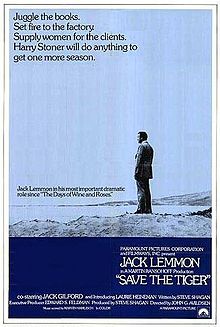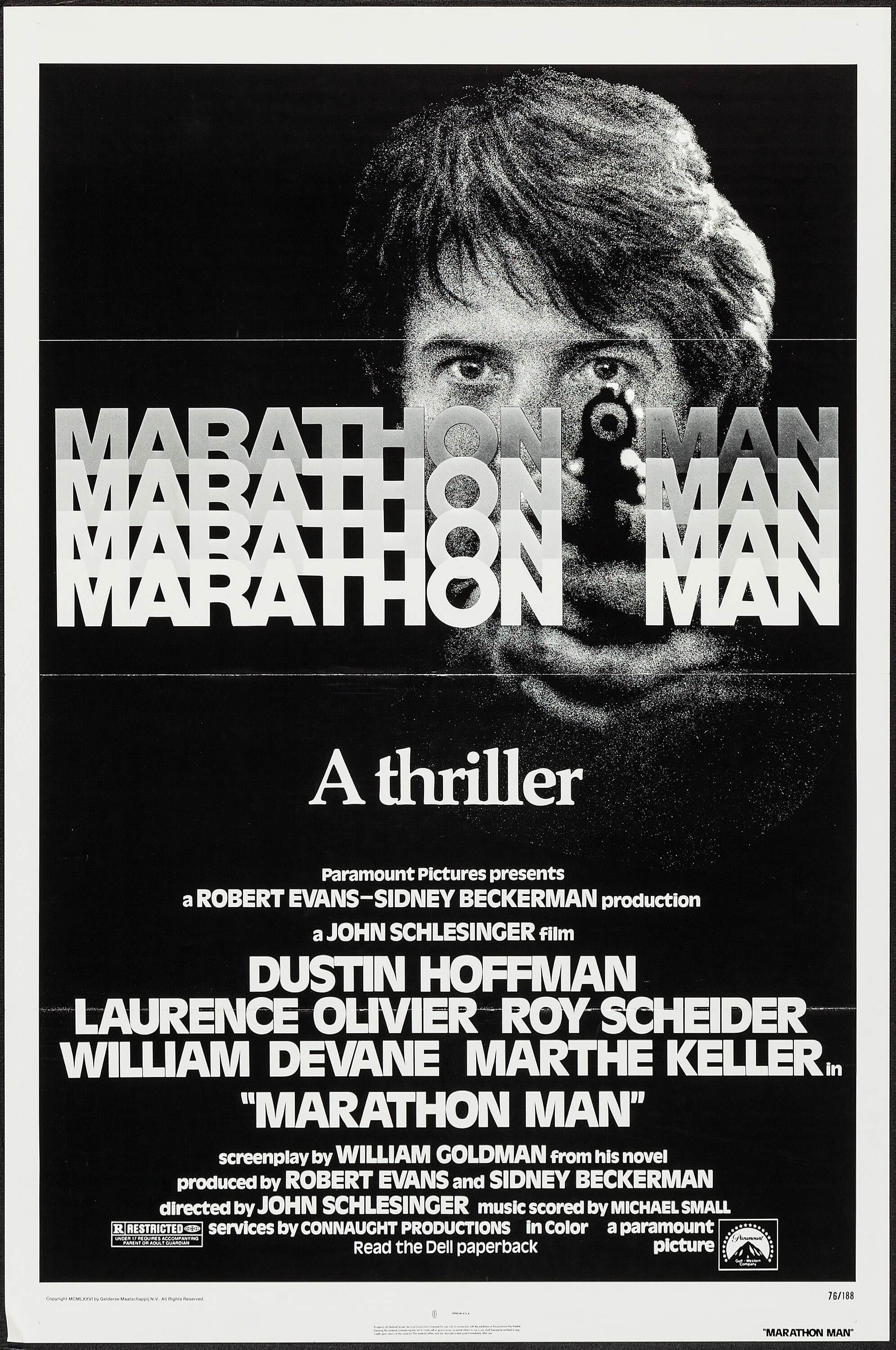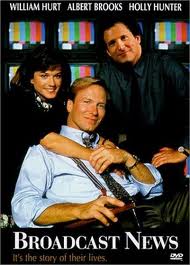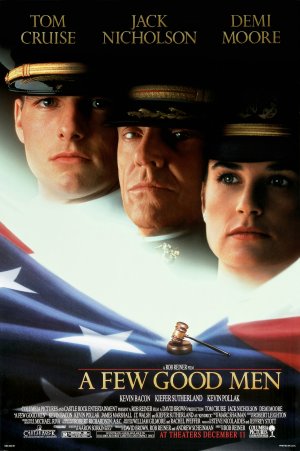‘Chinatown’ is about rescuing a woman with an enormous Cross to bear
“Chinatown” is a picture that tells us corruption is found everywhere, even in the most beautiful place on earth. The Garden of Eden here is greater Los Angeles and the San Fernando Valley, just before it was a mega-metropolis. Everyone, even the middle class, lives in finely kept, lush neighborhoods, with appealing homes in suburban-style settings. The rich either live in mansions staffed by housekeepers and butlers, or they own lucrative orchards. Everyone drives around in classic convertibles.
The big-city issues for which Los Angeles has come to be known, such as pollution, congestion, gang crime and aloofness, don’t exist here, even though the city in 1940 was the nation’s fifth-largest with 1.5 million people. “L.A.’s a small town,” the protagonist declares.
There is only one problem, and that is the human element. There is probably enough water for everyone, because certain intelligent and righteous people have figured out how to provide and distribute it. But they are outvoted by others of nearly unfathomable decadence, representing greed, lust, sexism and indifference.
In “Wall Street,” Bud Fox asks Gordon Gekko, “How many yachts can you water-ski behind, how much is enough?” Gekko answers, “It’s not a question of enough, pal; it’s a zero-sum game. Somebody wins, somebody loses.”
But “Chinatown” is more than greed, so when Jake Gittes asks Noah Cross, “Why are you doing it? How much better can you eat? What can you buy that you can’t already afford,” Cross’ answer is much more deep-seated and troubling than Gekko’s: “The future, Mr. Gittes. The future! ... Most people never have to face the fact, (at) the right time, the right place, they’re capable of anything.”
The brilliant music score and opening notes by Jerry Goldsmith will get you right away. That only happened because Robert Evans pushed back the film’s deadline to replace the initial composition work by Philip Lambro. While certainly admirable on first viewing, “Chinatown” must be seen at least a second time to be fully appreciated. The confusion is too great to be fully absorbed and the consequence of each line can’t be understood unless one is already aware of the outcome. In his book Roman by Polanski, director Roman Polanski writes that the first two scripts submitted by Robert Towne featured an “excessively convoluted plot that veered off in all directions” and required “pruning.”
Many people, though, probably decline a second viewing. This is one of those rare movies where the villain wins. The climax is so traumatic, the message so discouraging. It’s hard to blame them; this is a film that is almost too exceptional for its own good. It is a rare movie in which a protagonist succeeds at an important goal, only to wish he hadn’t.
Jack Nicholson, as the private investigator J.J. Gittes, was famous by 1974, but this was his first tour de force. He appears in every scene. It’s completely his movie, though he benefits from the spectacular work of Faye Dunaway and John Huston. His confusion is our confusion, and his goal becomes our goal — to find out what’s really going on. “It seems like half the city is trying to cover it all up, which is fine by me,” he says at one point, but eventually it is not fine with him, as he rediscovers his soul, tragically.
Opening scenes tell us what kind of protagonist we’ve got. Gittes is shown half-illuminated, in rooms with blinds partly drawn. First we see him stoically delivering photographic evidence to an agitated client. Soon after, he tries to talk a wealthy woman out of hiring him to catch her husband cheating. We see that he performs unsavory but legal services for the public. He drives an impressive car and wears dazzling suits. He’s not proud of his profession. But he’s apparently good at it.
Why does he do this line of work, and why was he chosen by outsiders to be involved in their scheme? He was formerly a policeman, with a troubled past. He can’t or won’t do police work anymore, so becoming a private investigator is a natural career move. He’s good, but small time. He chases cheating spouses and doesn’t know or care who’s really running L.A. This makes him the perfect hire for someone important who needs to locate a woman without any commotion.
This is illustrated neatly by Gittes’ tactics. We see him as a master of the little things, putting pocketwatches under car tires, swiping business cards, knocking out a taillight to track someone. But he is slow to see the forest through the trees.
Behind Jake’s confusion is this story: A rich, greedy man is planning the score of a lifetime. He is willing to commit murder to accomplish it. At the same time, presumably because he is aware of her age, he is desperate to find a young woman whom he undoubtedly plans to molest. This is where Jake comes in. He spends the first two acts of the film believing he must find the girl, then spends the last act realizing he must protect her.
Towne’s celebrated script is not without implausibilities. Certainly a man like Cross wouldn’t need to hire a small-timer like Gittes to embarrass Hollis Mulwray and locate the girl. Nor would it take a P.I. as savvy as Gittes so long to learn who the Crosses and Mulwrays are; one would think his receptionist could find numerous articles in an afternoon. Plot details about land ownership get bogged down in mass confusion when Jake and Evelyn visit a retirement home. Those issues don’t matter, because this must be a story about an outsider slowly absorbing the extent of human vice.
“Chinatown” will share an important angle with films such as “The Searchers,” “Taxi Driver” and the real-life Patty Hearst case — a woman who needs to be rescued who doesn’t really want to be rescued. It’s not that Evelyn Mulwray distrusts Jake or his motives — it’s that she’s sure he can’t win, and that his involvement only brings the bad guys closer to their target.
On too many occasions an important question is dodged or interrupted, indicating the real answer. But there are glorious moments of understatement and misperception. Jake tells Cross he only knows “mainly that you’re rich but too respectable to want your name in newspapers.” Cross tells Jake, “You may think you know what you’re dealing with, but believe me, you don’t.” The dialogue is brilliant, but not always perfect, evidenced by the legendary bedroom scene where Jake unknowingly outlines a prophecy only to have Evelyn’s question superseded by a phone call.
Polanski’s scenes constantly remind us of the beauty of Southern California. This is a movie of grotesque corruption, yet most scenes take place in stunning daylight or pleasing sunsets, a 1940-like noir resonating in 1974 Technicolor, enhanced by an understated and pitch-perfect score. (Polanski writes that Goldsmith came up with it “in record time.”) As Jake stumbles along on his mission, there is a repeated gradual progression of the timing of the scenes. New discoveries happen in the morning or midday, Jake takes action in late afternoon, and semi-climactic developments occur at night.
Polanski often tends to show the characters off-balance, struggling to control the situation. Jake ends up in several spontaneous, random scraps. The best sequence occurs when Jake jumps onto Evelyn’s car at the retirement home in a bouncy, awkward, yet impressive escape, but then once back at Evelyn’s home, they are shown in serious conversation in her courtyard, their heads at the bottom of the screen rather than middle, a creative way of drawing our eyes to them.
Polanski deftly handles two cliche minefields. This is a noir, and there must be some violence and some romance. The challenge is to make it different than all the other movie violence and romance. One scene featuring Polanski himself famously shows Jake, rather than being beaten up, slashed in the nose with a knife. An orchard scene that flirts with tediousness is made passable by having Jake be awkwardly attacked by a man with a crutch.
Pauline Kael curiously asserted that in playing himself as a gangster who knifes Jake’s nose, Polanski “must have known that many of us would recognize him and that the association with the Los Angeles knifing of his wife would provide an extra dimension of perversity.”
Jake does a lot of snooping. Impressively, he tends to get caught when we don’t expect it, such as in the Polanski knife scene, and escapes detection when we think he’s been spotted, as when he is taking pictures of Hollis from a roof.
The key moment of romance is not special work by Polanski, but the scene is saved by Nicholson. He sits stoically, displaying no hint of seduction, as Evelyn dabs peroxide on his painful nose. The sudden spark that occurs between them manages to trump the pedestrian lines about her eye.
It is good enough to deliver one of the epic scenes, of the couple in bed, when Jake tells as much of his story as we’re going to hear, and then Evelyn, reflexively, covers herself when Jake alarms her by revealing he has met her father.
The ending of “Chinatown” became a well-known offscreen battle. Pauline Kael writes that in Towne’s script, Evelyn kills Noah Cross and Jake helps the daughter escape to Mexico. But Polanski demanded, and got, the more tragic ending. Kael complained that the direction was “draggy, overdeliberate,” and that Polanski made a “coldly, suffocatingly compelling” movie.
In Roman by Polanski, Polanski concedes that he and Towne “couldn’t agree on an ending.” And “I knew that if ‘Chinatown’ was to be special ... Evelyn had to die.”
Faye Dunaway enjoyed a nearly decade-long stretch as perhaps America’s most acclaimed actress. “Bonnie and Clyde” might’ve been her most popular hit and “Network” her most honored, but “Chinatown” is likely her career apex, the one with the most star power and staying power. Evelyn is the opposite of the vivacious women of “Bonnie and Clyde” and “The Thomas Crown Affair.” This is a massively troubled woman who has likely experienced no happiness and lives for one goal, protecting her daughter from a monster. But we don’t know that initially, as she is able to put on a tough, brave face when attempting to keep Jake out of her life. She can’t resist letting him in, though, as he learns more details of her husband’s death that she does not know, and then quickly we see her guard let down. She stammers in conversation, blinks, occasionally trembles. It’s not clear why she is so nervous until the ending, when her mission is revealed and she finally asserts herself to save her daughter.
In Roman by Polanski, Polanski writes that Robert Evans wanted Jane Fonda for the part of Evelyn, deeming Dunaway “difficult.” But Fonda turned it down, and Dunaway did indeed prove far more “difficult” than Polanski expected. “She seldom knew her lines,” Polanski writes, which explains the frequent stammering or hesitation with which she delivers them. Tension between the actress and director boiled over because of a simple stubborn strand of hair in a restaurant scene. Her agent stepped in, Polanski writes, and the production continued.
One unmistakable element of “Chinatown” is sexism. It is implied that men’s abuses of women are partly to blame for the decadence. Jake is part of this, which adds to his ultimate regret. He spends much of the movie insisting on dealing only with male characters, not realizing the story is with Evelyn. He doesn’t want to do business with her, he asks to deal with her husband. He makes insulting comments about Catherine to Evelyn. He seems more inclined to work for men who want evidence against their wives than women who want evidence against their husbands. He seems to care not that his work led to one woman being beaten. He tells raunchy jokes and orders his secretary out while doing so.
John Huston’s Noah Cross is on the short list of cinema’s greatest villains, a crowning moment for someone who is also on the short list of the greatest talents ever produced by Hollywood. He was a larger-than-life person who brought the necessary swagger to a role like this opposite Nicholson. Brando probably could’ve done it, but he was too young. Huston was only 67 for the filming but appears a couple decades older. Cary Grant would not have had the look. “The Godfather, Part II” required Lee Strasberg to be a gentle, unassuming man. Huston’s role is much less likable but even more effective: an incredibly disgusting, grotesque, savvy old man.
“Chinatown” is one of those magical convergences of script, setting and talent where the whole is equal to the sum of the parts. Those who find the climax too gruesome can merely turn it on and watch half an hour of it, any part, and appreciate the richness of the work, the Southern California landscape, the deliberate, compelling score, or Jake’s persistence. “You can’t always tell what’s going on,” Jake says, but it’s something majestic.
4 stars
(September 2008)
(Updated March 2024)
“Chinatown” (1974)
Starring: Jack Nicholson as J.J. “Jake” Gittes ♦ Faye Dunaway as Evelyn Cross Mulwray ♦ John Huston as Noah Cross ♦ Perry Lopez as Lieutenant Lou Escobar ♦ John Hillerman as Russ Yelburton ♦ Darrell Zwerling as Hollis Mulwray ♦ Diane Ladd as Ida Sessions ♦ Roy Jenson as Claude Mulvihill ♦ Roman Polanski as Man with Knife ♦ Richard Bakalyan as Detective Loach ♦ Joe Mantell as Lawrence Walsh ♦ Bruce Glover as Duffy ♦ Nandu Hinds as Sophie ♦ James O’Rear as Lawyer ♦ James Hong as Kahn ♦ Beulah Quo as Mulwray’s Maid ♦ Jerry Fujikawa as Mulwray’s Gardener ♦ Belinda Palmer as Katherine Cross ♦ Roy Roberts as Mayor Bagby ♦ Noble Willingham as Councilman ♦ Elliott Montgomery as Councilman ♦ Rance Howard as Irate Farmer at Council Meeting ♦ George Justin as Barney, the Barber ♦ C.O. Erickson as Banker at Barbershop ♦ Fritzi Burr as Mulwray’s Secretary ♦ Charles Knapp as Morty ♦ Claudio Martinez as Boy on Horseback ♦ Federico Roberto as Cross’ Butler ♦ Allan Warnick as Clerk at Hall of Records ♦ John Holland as Farmer in the Valley ♦ Jesse Vint as Farmer in the Valley ♦ Jim Burk as Farmer in the Valley ♦ Denny Arnold as Farmer in the Valley ♦ Burt Young as Curly ♦ Elizabeth Harding as Curly’s Wife ♦ John Rogers as Mr. Palmer ♦ Cecil Elliott as Emma Dill ♦ Paul Jenkins as Policeman ♦ Lee de Broux as Policeman ♦ Bob Golden as Policeman
Directed by: Roman Polanski
Written by: Robert Towne
Producer: Robert Evans
Associate producer: C.O. Erickson
Original music: Jerry Goldsmith
Cinematography: John A. Alonzo
Editing: Sam O’Steen
Casting: Jane Feinberg ♦ Mike Fenton
Production design: Richard Sylbert
Art direction: W. Stewart Campbell
Set decoration: Ruby R. Levitt
Costume design: Anthea Sylbert
Makeup: Hank Edds ♦ Susan Germaine ♦ Lee Harman ♦ Vivienne Walker
Stunts: Jim Burk ♦ Steven Burnett ♦ Alan Gibbs ♦ Hal Needham





